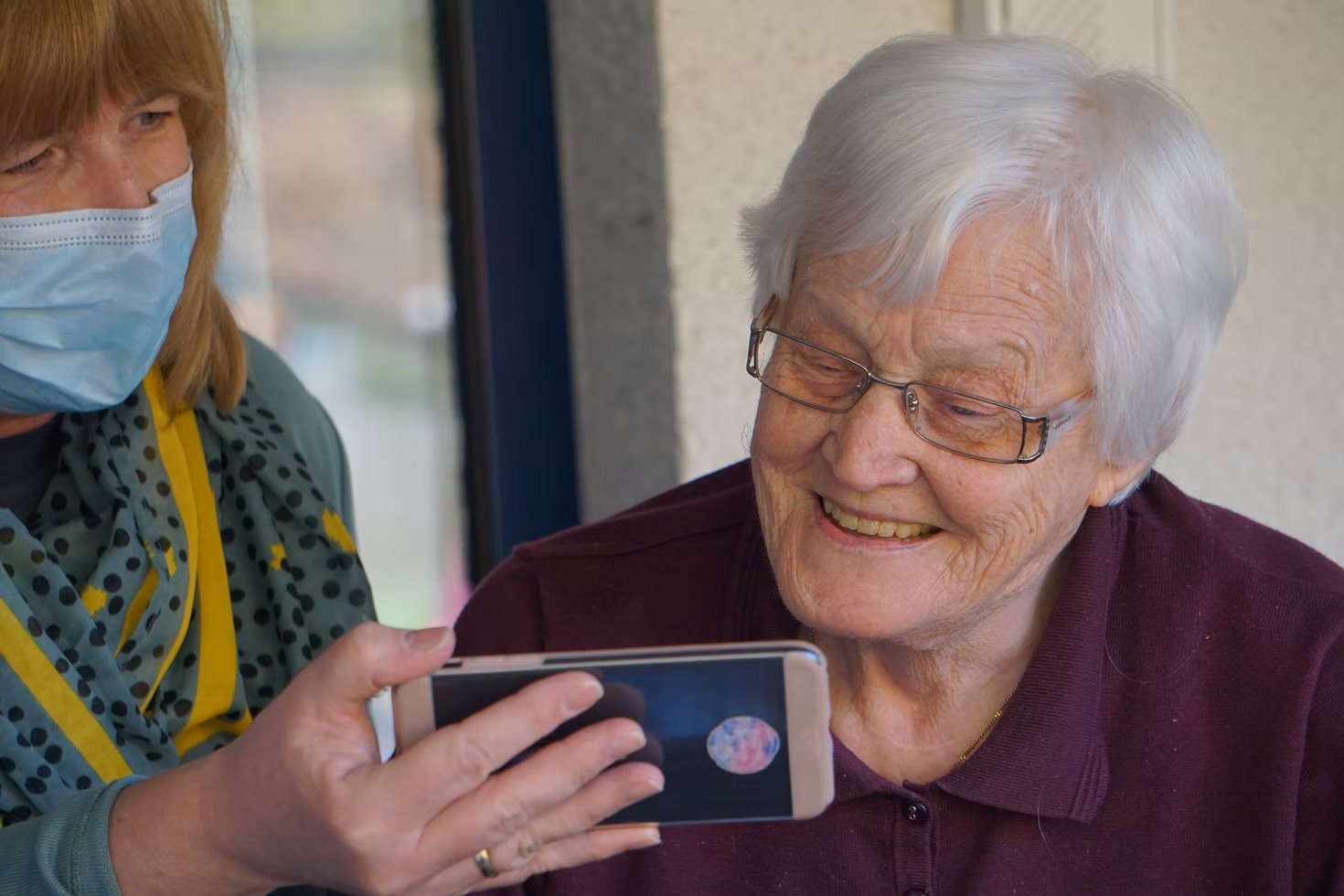Tips To Creating A Strong Partnership With Your Loved One’s Caregiver
Many families face a new chapter in their lives with a senior family member living at home. In most cases, in-home senior care is preferable to nursing homes or assisted living facilities, as most seniors prefer aging in place. The safety and comfort of senior family members is the most important, which is why, after hiring an in-home caregiver, it’s important to build a strong and close relationship with that individual. Together you can help your relative age happily and healthily.
Forming a strong partnership with dedicated in-home caregivers can improve the care and the communication from both sides. This will help provide you with peace of mind knowing they are in the best hands and their needs are being met. Use these tips for working with a senior loved one's home caregiver to help your family establish trust, set caregiving duties and expectations, as well as improve overall communication with your family’s professional caregiver.
1. Set Responsibilities and Expectations
Setting your own expectations prior to hiring professional caregivers can be very important. Writing out a clear list of responsibilities you wish for dedicated caregivers to be in charge of, such as medication reminders, meal preparation or scheduling doctor’s appointments, this can avoid miscommunication down the line. If you are using an agency, they will usually go over many of these items to make sure everyone is on the same page. If you already have a primary caregiver in place, it is never too late to continue this type of conversation and keep the relationship smooth.
As the healthcare needs of your senior loved one changes over time, it’s a good idea to revisit the ongoing conversation and adjust expectations. Ask for feedback from your caregiver and trust their experience on similar situations that you may be facing for the first time and discuss together a game plan. This will help manage expectations on both sides of the relationship.
2. Share Personal Stories and Experiences About Your Senior Family Member
Caregiving is often seen as caring for one’s physical needs but you are really treating aging adults as a whole person. There is so much more that a person wishes others knew about them, or who they were in the earlier part of their life, than their current limitations. Sharing stories about your aging loved one’s life can make their caregiving experience more personal and help create a strong relationship. Some older adults may be open to talking freely about themselves and others could feel reluctant with a stranger. You know your family best as to what would be their preference.
Discussing a relative’s past can be very important if they are experiencing cognitive decline. For a new caregiver to understand a person’s history, preferences and emotional needs, so they can provide the best kind of support for that individual’s personality and in-home care needs.
3. Dedicated In-Home Caregivers are People, Not Just an Employees
An in-home caregiver can provide for many needs of a loved one and household but oftentimes they can also act as a companion and confidante to prevent loneliness. A great bond between caregiver and your loved one, they are likely to learn a lot about your family. Getting to know each other is a two-way street. Taking the time to get to know your parent’s caregiver as a person and connecting with them on a personal level can help the relationship immensely. If you are also in the household this can be a natural process over spending more time together. If you live further away it may take more effort for communication by phone and it can be difficult to develop but worth attempting. Building strong relationships with your family’s caregivers will increase retention and reduce caregiver turnover. Everyone likes feeling appreciated and seen.
4. Understand Personal Habits and Preferences
When you hire a caregiver in your home they are usually not only spending a lot of time caring for your loved one, but they may also be addressing household needs as well. Household chores and responsibilities can be such a relief to the family for this aspect to be taken care of as well. Many times light housekeeping is discussed as part of the position although care needs are priority. Expressing personal preferences on which tasks and if there is a particular way you wish something to be done is important. Your caregiver wants to do a good job but every home can be different in the way they do chores and discussing these preferences ahead or having an open and ongoing conversation can be helpful.
5. Develop Trust
For many seniors, it can be very intimidating having a new person care for personal needs such as hygiene, bathing, dressing and other personal care. This can be uncomfortable, or even scary, for some seniors without a level of trust. It is also important for you to build trust with your loved one’s caregiver. During the hiring stage, if you are going through an agency, many of these tasks will have already been completed to make sure the in-home caregivers meet standards and expectations. Overall things that can help if dealing with it independently, or to inquire about:
References from former clients or agencies before hiring
Settings clear expectations for communication
Getting to know each other and learning more about the caregiver personally
Talking through difficult situations and being prepared for them. Many times aging relatives can have dementia and with that can come with paranoia, etc. For examples, if they believe items that are lost are being stolen, even if they are of no value. If your relative has had a history of this confusion, be honest with the caregiver and work through it if they jump to an accusation.
Making it very clear that you are open to talk through any situation that may come up.
If you are dealing with an agency be sure to bring up any and all concerns as they arise.
6. Honesty About Past Problems
Situations happen and sometimes they become a pattern. If you have found it has been hard to keep a caregiver in the past there could be repeat issues that keep coming up. Being upfront with a caregiver about the possible problems they could face when dealing with your loved one can help prepare them and find solutions. Stubborn older relatives can sometimes make finding a long term caregiver difficult and there are ways to overcome these obstacles. If your parent has rude or abrasive tendencies towards you or other family members it is likely they will treat a caregiver the same way. This is a common issue for seniors experiencing dementia or a cognitive decline. Letting your new agency or caregiver know ahead of time can help them recommend someone who is comfortable and experienced with working with challenging clients.
7. Work With Dedicated and Compassionate Caregivers to Find Solutions Together
This may be your first time helping older adults manage their healthcare needs. It can be overwhelming and new challenges can present themselves all the time. Experienced, dedicated and compassionate caregivers are familiar with elder care and know how to handle these situations, yet you know your aging loved one best. Working together with knowledge of the person as an individual and the experiences a caregiver can bring forward a winning combination with the right amount of communication.
If you are ready to partner with an in-home caregiver to help your loved one age in place safely, reach out to Staff Relief Healthcare to learn more about professional home care assistance options in your area.


